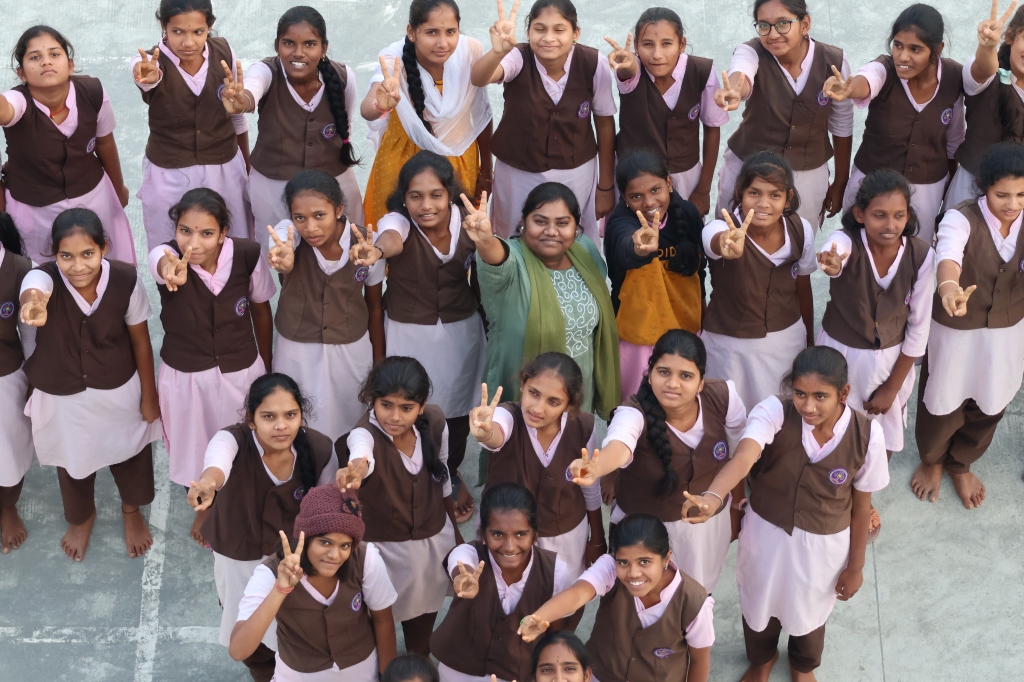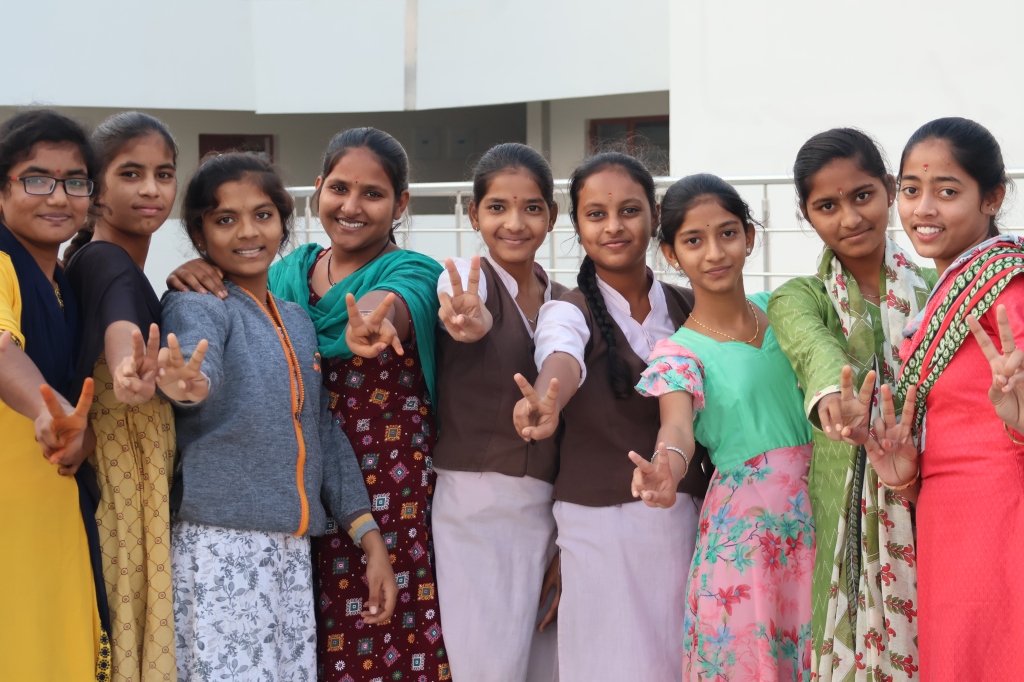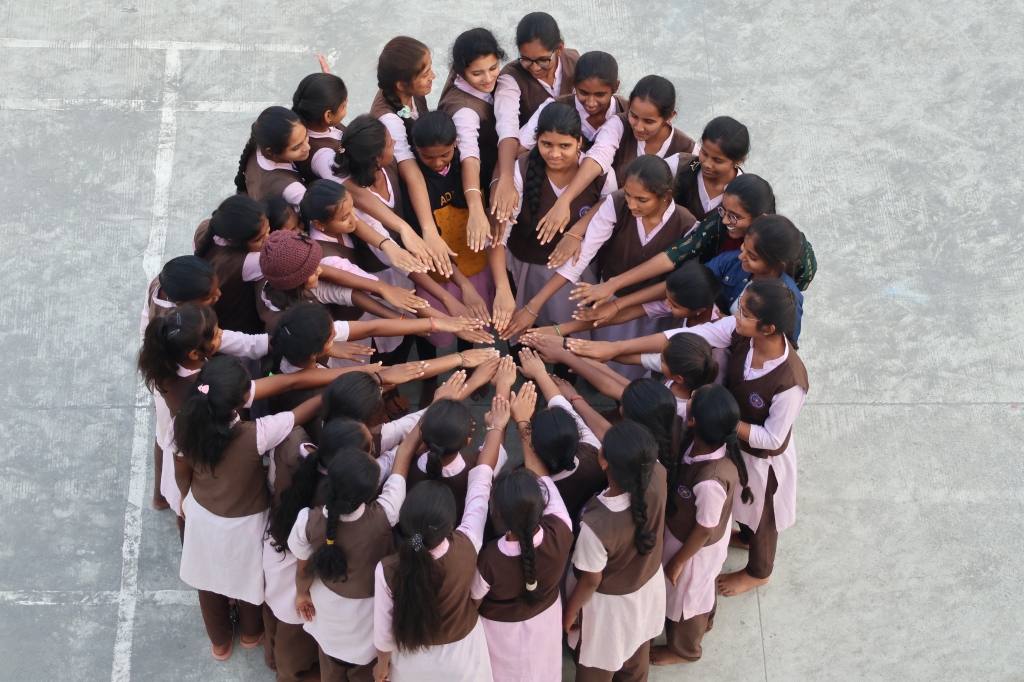
“I, Priyanka Toomkunta, began my journey as a beneficiary at a school in Hyderabad during VOICE 4 Girls’ second year. Fast forward to today, I have completed the full circle – inspired change at school, became an inspiration of change to adolescents by being a camp counsellor, and now developing programmes and writing modules as part of VOICE 4 Girls’ Content and Communications Team.”
Joining VOICE 4 Girls has been a transformative experience for me. Being a part of VOICE I have had the chance to interact with adolescent girls and teach them about crucial topics like health, safety, rights, and future planning. Knowing their bodies and embracing their menstrual cycles make girls feel unstoppable. The truth is, not everyone has access to this empowering knowledge yet.
According to UNICEF, “Only 13 per cent of Indian girls are aware of menstruation before menarche, or their first period. Almost 60 per cent of girls remain absent during their periods or drop out permanently from school due to a lack of infrastructure and other challenges”, cited an India Today report.
For many girls and women, talking about menstruation can be embarrassing. But why is that? In this blog, let’s understand the reasons why breaking the silence around menstruation is crucial for women and girls’ well-being and empowerment.
As a trainer, I often hear counsellors (college students who work with us) share their experiences about cultural beliefs related to menstruation. One such young woman said that, “Menstruating girls are usually told not to touch pickles and to be very careful about their behaviour.” This myth around menstruation extends to a wider audience and seems ingrained into their minds.
A counsellor at the camp, reflecting on the topic of menstruation taught in VOICE 4 Girls programmes, expressed her surprise at the societal norm that discourages discussing periods with brothers (or in general men) at home. However, the same girls are expected to approach strangers at shops to obtain the menstrual products they need.
This made me think – if we don’t talk about menstruation with the men in our families, how can we raise awareness? It’s necessary to have open conversations about menstruation, as it is a natural process.

When I visited schools for Her VOICE camps, I observed that during discussions about periods, girls frequently seized the opportunity to inquire about their bodies. These groups comprised students who hadn’t experienced their first period yet. When I inquired about the usefulness of these sessions, they consistently emphasized the importance of comprehending the changes occurring in their bodies. Often, their parents avoid discussing these topics, either asserting that they will learn naturally as they mature or deeming it inappropriate to broach the subject at the moment.
One girl mentioned that her grandmother advised her against wearing flowers in her hair during her period. However, after attending the session, she decided to try it and found that nothing adverse happened to the flower. These awareness sessions aided the girls in taking small steps towards understanding their bodies and promoted open conversations about periods.
What happens during the first period?
The topic of menstruation is a taboo in many households. As a result, these young girls enter puberty without any prior knowledge or understanding of what to expect when they get their first period. This lack of awareness leaves them feeling unprepared. Moreover, many girls are not familiar with menstrual products or how to use them correctly.
During an Oorja session, a young college going woman shared a surprising discovery. She had just learnt about menstrual cups and tampons through the sessions. Excited, she discussed them with her mother who is a nurse. To her astonishment, her mother revealed that she uses these products but never educated her about them. This revelation made her mother realise how important it is to talk openly about such topics with her daughter.
Access to information positively alters their life
During one of the Parichay sessions – where girls are introduced to menstrual health management – one camper shared, “I used to feel very shy about discussing periods and didn’t understand how they worked. I often wished I were a boy because they don’t have periods and seem to have more freedom. However, after attending the camp, I’ve changed a lot. Now, I can openly discuss periods.”
Another camper shared, “Who knew reusing pads even after washing could be a breeding ground for bacteria? Thanks to this camp, many myths cleared up for me. Now, my hygiene is better and my future as a gynaecologist feels even brighter”.
Tiny bits of information like this helps them feel prepared to manage their menstrual hygiene effectively.
These are some stories of adolescent girls and young women who confided in me as their Akka (elder sister) to help them sail through their experiences. Sadly, my reach to girls like them is limited and my goal is vast.

Menstruation, a perfectly natural biological process, is shrouded in shame and silence. Yet, it’s the gateway to reproduction and the continuation of human life. Myths and taboos plague this journey, and it’s crucial for everyone, regardless of whoever, to address them. We must create safe spaces by speaking up on menstruation.
Join me and help amplify the voice of my organisation to encourage open communication, so girls like them can lead a more confident and fulfilling life.
Glossary:
- Camp Counsellors: College going students who intern with us and conduct sessions
- Campers: Students/beneficiaries/participants of camps organised by VOICE 4 Girls
- Trainers: VOICE 4 Girls staff who supervise, train and coordinate objective achievement through counsellors at the camp.
Written by:
Priyanka Toomkunta – Content and Communications Officer
